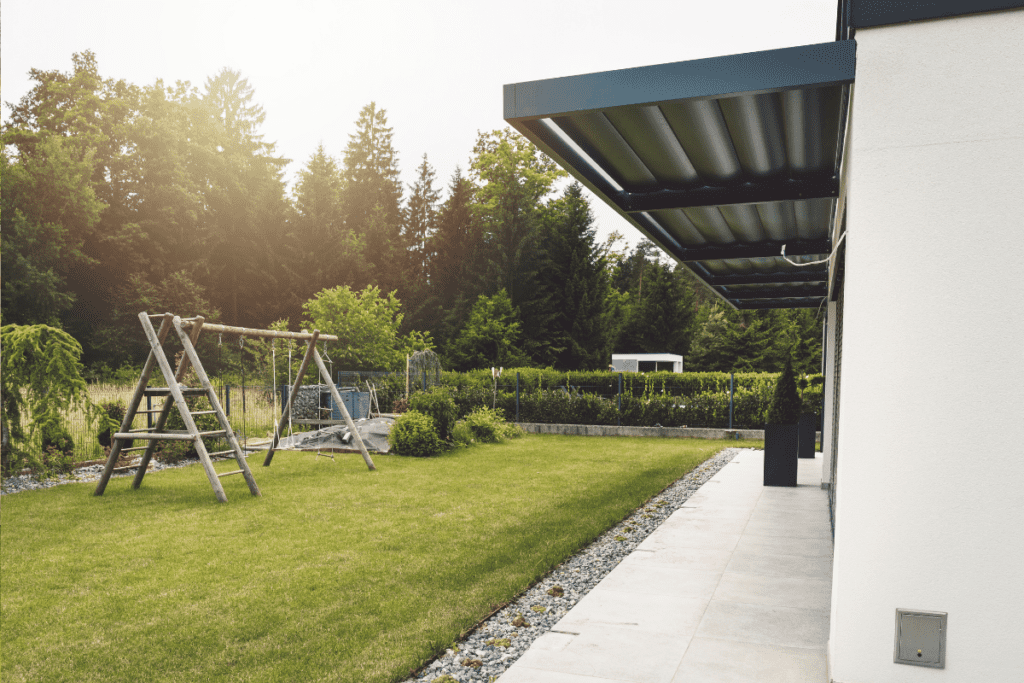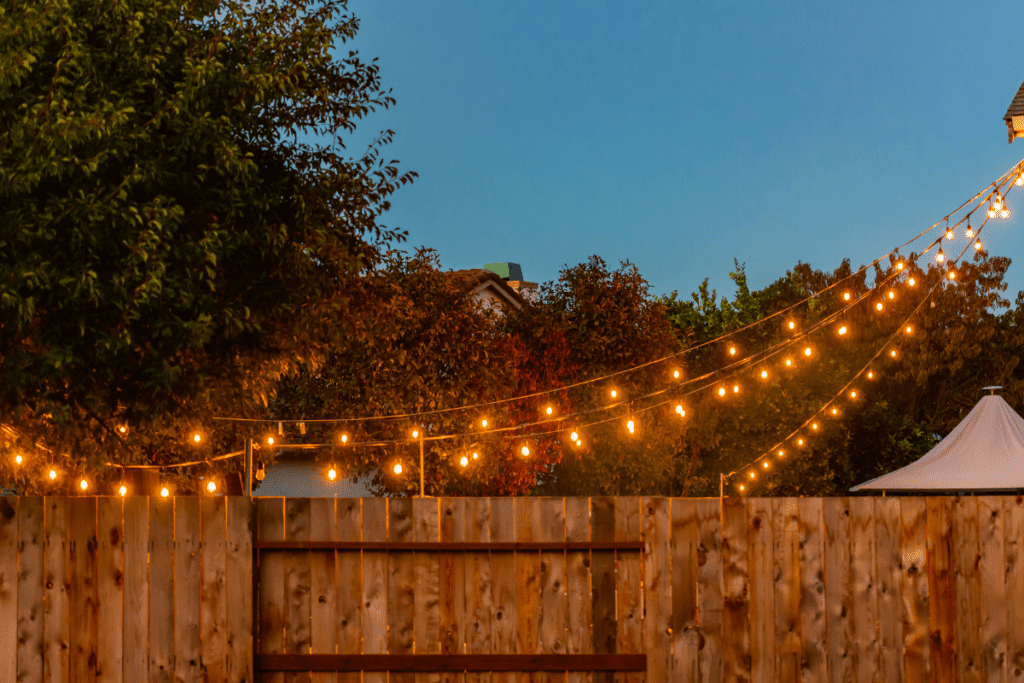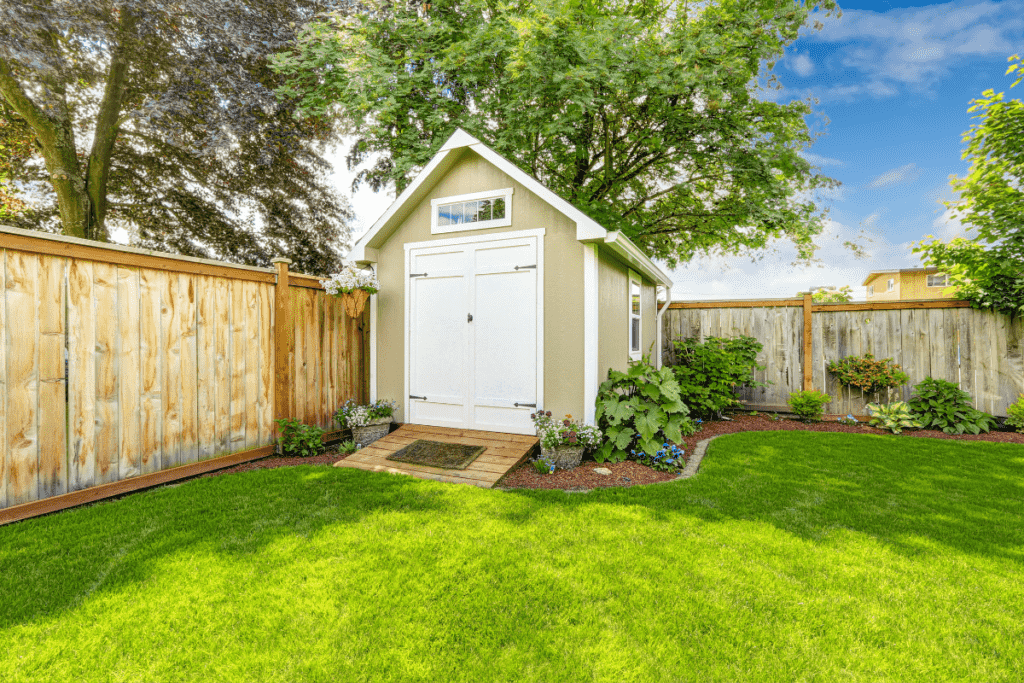Contents
When you live in a homeowners association, you know that there are certain rules and regulations you must abide by. Generally speaking, these regulations are fairly straightforward and common sense-based, designed to promote peace within the community and to help homeowners maintain their property values. Of course, the HOA Board has certain limitations on making and enforcing rules, as outlined in the governing documents of the community.
These rules can affect various aspects of homeownership, including what owners can and cannot do in their backyards. Indeed, it’s important for homeowners to check their HOA’s backyard policies before they decide to plant trees, erect a fence, or throw a party that will have lots of noise.
If you are an HOA member or a Board member and have questions about backyard rules, we recommend checking with your HOA management company. If you’re in the Carolinas, feel free to contact Kuester Management Group. Our company has years of experience providing HOA management in Huntersville NC, Charlotte NC, Myrtle Beach SC, and HOA Management in Fort Mill SC.

Is it Legal for the HOA to Create Backyard Rules and Restrictions?
First and foremost, it’s important to consider the legality of HOA backyard rules and restrictions. As a rule of thumb, it is perfectly legal for your HOA Board to create and enforce rules that relate to backyard upkeep and activity. However, there are two critical factors to consider: State laws, and the governing documents of the HOA itself.
Depending on the state you’re in, there may be laws prohibiting the HOA from creating certain types of laws. If that’s the case, then those laws are automatically void and unenforceable. We highly recommend that all members of the HOA Board familiarize themselves with their state laws.
There are also the HOA’s CC&Rs. If these documents contain rules about backyard fences, solar panels, etc., and if those rules do not conflict with state law, then they are considered to be both valid and enforceable. Again, we recommend a close reading of the HOA governing documents, both by Board members but also by owners. Familiarity with these documents is essential for knowing your rights and responsibilities, no matter the position you hold within the community.
What About Condominium Associations?
You may notice that we’re focusing almost exclusively on HOA communities, as opposed to condo associations. While a condo association may technically have backyard rules, this isn’t nearly as common as it is within HOAs. The reason is simple: In a condo association, you usually do not have lawns or backyards that belong to individual owners.
What are the Most Common Backyard Rules in an HOA?
While backyard rules can vary from community to community, there are certain types of rules that are especially common. Here are a few of the most prominent examples.
1) Restrictions on certain types of plants.
Some HOA communities may prohibit homeowners from planting certain types of plants in their backyards. Examples include:
- Plants that pose a threat to health and safety.
- Exotic plants.
- Plants that might aggressively spread into other yards.
Additionally, some HOAs may require homeowners to select from pre-approved lists of plants, simply to ensure some uniformity in backyard aesthetics. This can be an important way to preserve property values, though many communities will impose such restrictions only on the front yard.
2) Limits on personal gardens.

While HOAs usually have no problem with planting a few flowers or herbs, there may be some limitations placed on full-fledged backyard gardens. There are multiple reasons for this, but the main one is that backyard gardens often attract pests. Additionally, they usually have a negative effect on property values.
While backyard gardening may be limited, HOAs can cater to the “green thumbs” in their midst by making a community garden area.
3) Rules regarding tree care.
In some HOAs, it may be prohibited to have backyard trees at all. Where trees are allowed, there will likely be some stipulations in place. Specifically, homeowners may be required to:
- Keep trees properly pruned so that they do not extend into neighboring yards.
- Plant trees in areas where they will not restrict anyone’s views.
- Properly address any trees that become diseased (usually by cutting them down).
4) Restrictions on sculptures, furniture, etc.
An HOA may also prohibit homeowners from placing any large items in their backyard, particularly items that might be deemed eyesores.
Some of the most common examples include:
- Sculptures
- Offensive decorations
- Basketball hoops
- Fountains and bird baths (which can attract mosquitoes)
5) Limits on storage structures.

Some homeowners may desire to erect standalone storage structures, including sheds, gables, mini barns, or garages. Usually, HOA communities deal with this by requiring homeowners to submit their plans to an architecture review committee, which will verify that the plans meet the community’s aesthetic standards. The architecture review process should be well-documented in the community’s CC&Rs.
6) Rules regarding loud noises.
And what about backyard parties and gatherings? These are generally going to be perfectly fine, though some HOAs may have some rules and statues in place with regard to noise level or curfew.
Backyard Rules Should Exist for a Reason
The important thing for owners and Board members to keep in mind is that backyard rules should never be arbitrary. On the contrary, backyard rules should always exist to help community associations maintain property values and uniform aesthetics. And, they should be enforced fairly and consistently. With questions or concerns, reach out to your property manager.
Frequently Asked Questions
A few additional, common questions:
If it is a rule clearly articulated in the CC&Rs, and if the rule is consistent with state law, then yes, the HOA may have the authority to charge you fines for any violations.
What happens if you don’t listen to the HOA?
You may face disciplinary action, including written warnings, fines, restricted privileges, or even legal action.
How do you deal with rude HOA members?
The best approach is to try to work it out with them directly, than take it to the Board or the property manager for conflict resolution.

